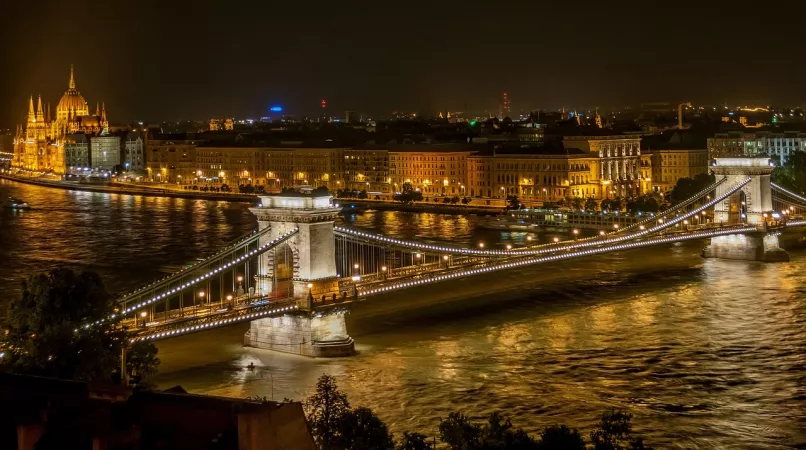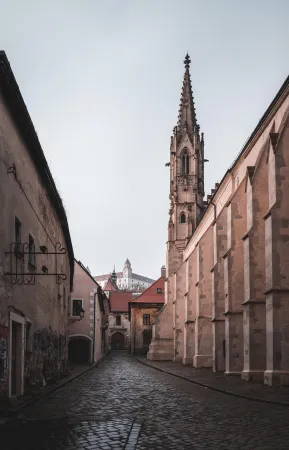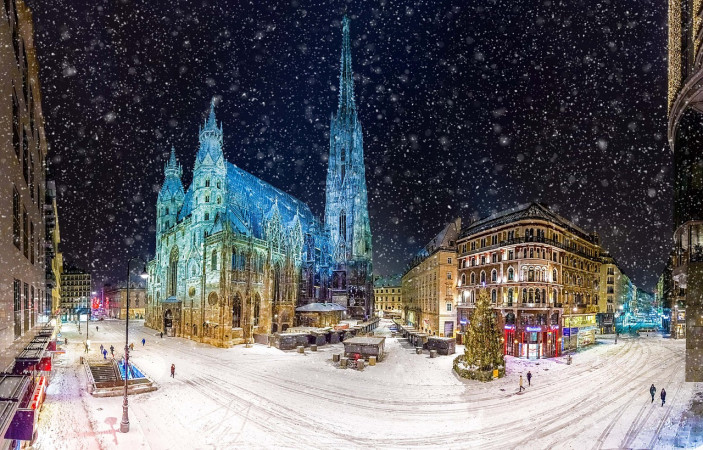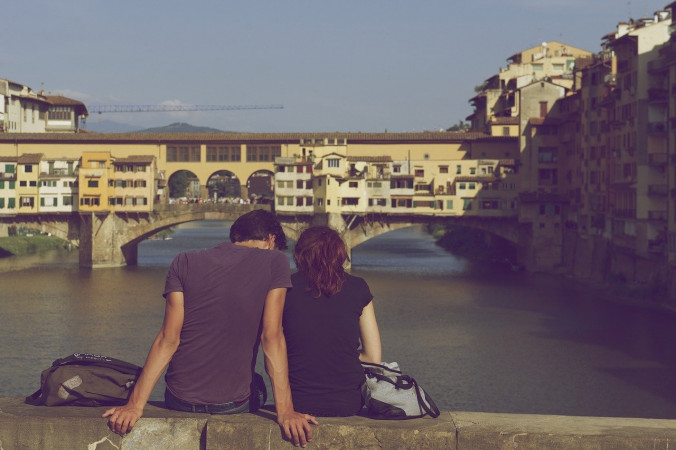Hi User
Navigation
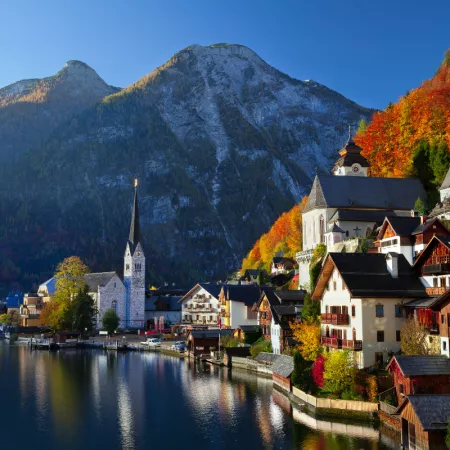
Austria
Duration
7 to 10 Days
7 to 10 Days
Best time to visit
May-Jun, Sep
May-Jun, Sep
Theme
Hill Station, Adventure, Heritage
Hill Station, Adventure, Heritage
Austria Travel Guide
Austria, located in the heart of Europe, is a country renowned for its stunning Alpine landscapes, rich history, and vibrant cultural scene. This landlocked country is famous for being the birthplace of classical music legends like Mozart and Strauss, as well as for its picturesque cities, charming villages, and delicious pastries. With a history dating back to the Habsburg Empire, Austria boasts a wealth of architectural treasures, including magnificent palaces, churches, and castles. Whether you're exploring the historic streets of Vienna or skiing in the Austrian Alps, this country offers something for every traveler.Top Attractions in Austria
- The majestic Schönbrunn Palace in Vienna
- The fairy-tale village of Hallstatt
- The iconic Hohensalzburg Fortress in Salzburg
- The breathtaking Grossglockner Alpine Road
- The vibrant Vienna State Opera
Austria is Famous for
Austria is most famous for its classical music heritage, stunning Alpine landscapes, and delicious pastries.Top Attractions in Austria
- Exploring the historic streets of Vienna
- Skiing in the Austrian Alps
- Visiting the charming village of Innsbruck
- Indulging in the coffee culture of Vienna
- Admiring the art at the Belvedere Palace
What's Great about Travelling to Austria?
- Experience the charm of historic cities
- Enjoy outdoor activities in the stunning Alps
- Immerse yourself in a rich cultural scene
What's Not So Great about Travelling Austria?
- High cost of living in major cities
- Crowds of tourists in popular destinations
- Language barrier in rural areas
Travel Tips for Austria
- Check visa requirements before travel
- Use public transportation for easy city access
- Be cautious of pickpockets in tourist areas
Important Austria trip information
- Ideal Duration: Spend at least 7-10 days to fully explore Austria
- Best Time to Visit: Visit during the summer months for pleasant weather
- Nearby Airports and Railway Stations: Vienna International Airport and Vienna Hauptbahnhof are major transportation hubs
Popular Austria Tour Packages From:
Budget Austria Tour Packages Under:
11 days & 10 nights
Fusion Europe - Winter 11D/10N
2D Austria • 2D France • 2D Germany • 2D Italy • 3D Switzerland
Tour package by Travlio (Authorised Partner of Thomas Cook Kolkata)
Verified Trustseal
INR 400,000 SAVE INR 120,000
INR 2,80,000 /Adult
7 days & 6 nights
5 (24)
6N/7D Budapest, Vienna & Prague Tour Package with Flights from Mumbai - 3 Adults 1 Child
2D Budapest • 2D Prague • 3D Vienna
Tour package by SMILE2MILES
Verified
INR 529,444 SAVE INR 52,944
INR 4,76,500 /Adult
7 days & 6 nights
5 (24)
6N/7D Prague, Vienna & Budapest Tour Package with Flights from Mumbai - 2 Adults
2D Budapest • 2D Prague • 3D Vienna
Tour package by SMILE2MILES
Verified
INR 320,000 SAVE INR 64,000
INR 2,56,000 /Adult
9 days & 8 nights
4.9 (28)
Central Europe’s Gems: Prague, Vienna, Bratislava & Budapest in 9 Days
2D Bratislava • 2D Budapest • 2D Prague • 3D Vienna
Tour package by Triplagalo
Verified
INR 140,000 SAVE INR 35,000
INR 1,05,000 /Adult
7 days & 6 nights
5 (24)
6N/7D Prague, Vienna & Budapest Tour Package with Flight from Delhi - 4 Adults
2D Budapest • 2D Prague • 3D Vienna
Tour package by SMILE2MILES
Verified
INR 592,941 SAVE INR 88,941
INR 5,04,000 /Adult
9 days & 8 nights
4.3 (400)
8N/9D Europe Tour Package
2D Austria • 2D Italy • 2D Prague • 3D Switzerland
Tour package by TripClap
Verified Trustseal
INR 180,917 SAVE INR 45,229
INR 1,35,688 /Adult
FAQ's on Austria
Q1: What is the best time to visit Austria?
The best time to visit Austria is during the spring (April to June) and fall (September to October) when the weather is pleasant, and tourist crowds are fewer. Summer (July and August) is also a popular time with various festivals and outdoor activities, while winter (December to February) is ideal for skiing and enjoying the magical Christmas markets. Consider visiting during the shoulder seasons for a balance of good weather and fewer crowds.
Q2: Do I need a visa to travel to Austria?
Most tourists from the US, Canada, Australia, and the EU do not need a visa to enter Austria for stays up to 90 days within a 180-day period. However, it's important to check the specific visa requirements based on your nationality before traveling. Make sure your passport is valid for at least three months beyond your planned departure date.
Q3: What are the must-visit attractions in Austria?
Austria is home to stunning attractions such as the historic city of Vienna, the picturesque Salzburg, the beautiful Austrian Alps, including Innsbruck and Hallstatt, and the iconic Schönbrunn Palace. Don't miss experiencing the classical music scene, exploring charming villages like Hallstatt, and indulging in the rich cultural heritage of Austria.
Q4: Is Austria a safe place to travel?
Austria is generally a safe country for travelers, with low crime rates. However, it's advisable to stay vigilant in crowded tourist areas to avoid pickpocketing. Certain areas in major cities may have higher crime rates, so it's best to research and take necessary precautions. Follow standard safety practices and be mindful of your belongings.
Q5: What is the local currency in Austria and can I use credit cards?
The official currency of Austria is the Euro (EUR). Credit and debit cards are widely accepted in most establishments, particularly in tourist areas. ATMs are readily available throughout the country, making it convenient to withdraw cash. It's always good to have some cash on hand, especially for smaller purchases and in rural areas.
Q6: What is the local cuisine like in Austria?
Austrian cuisine is known for its hearty and flavorful dishes. Must-try specialties include Wiener Schnitzel, Sachertorte (chocolate cake), Apfelstrudel (apple strudel), and traditional Austrian sausages. Vegetarians can enjoy dishes like Käsespätzle (cheese noodles) and Erdäpfelsalat (potato salad). Don't forget to pair your meal with a glass of local wine or beer for a complete culinary experience.
Q7: What transportation options are available in Austria?
Austria has a well-developed transportation system that includes trains, buses, trams, and taxis. The train network is efficient and connects major cities and regions. Public transportation in cities like Vienna and Salzburg is convenient and easy to use. Renting a car is also a good option for exploring the countryside and remote areas. Cycling is popular in Austria, with dedicated paths for cyclists.
Q8: Are there any cultural norms or etiquette I should be aware of when visiting Austria?
When visiting Austria, it's important to greet people with a handshake, maintain eye contact during conversations, and address them with their title and last name, unless invited to use their first name. Austrians value punctuality, so be on time for appointments and reservations. Tipping is customary in restaurants, and a 5-10% tip is appreciated. Respect local customs, such as removing your shoes before entering someone's home, and follow dining etiquette while enjoying traditional Austrian meals.
Q9: I am a travel agent. How can I buy travel leads of Austria?
Register yourself as a travel agent at agents.tripclap.com and then you can buy travel leads to Austria once your account is approved. For more details contact our support team at +91-8069186564 or support@tripclap.com
Certified
We accept (more)
Members of
Media Recognition
Trusted Partners
Award
Copyrights © TripClap. All Rights Reserved


